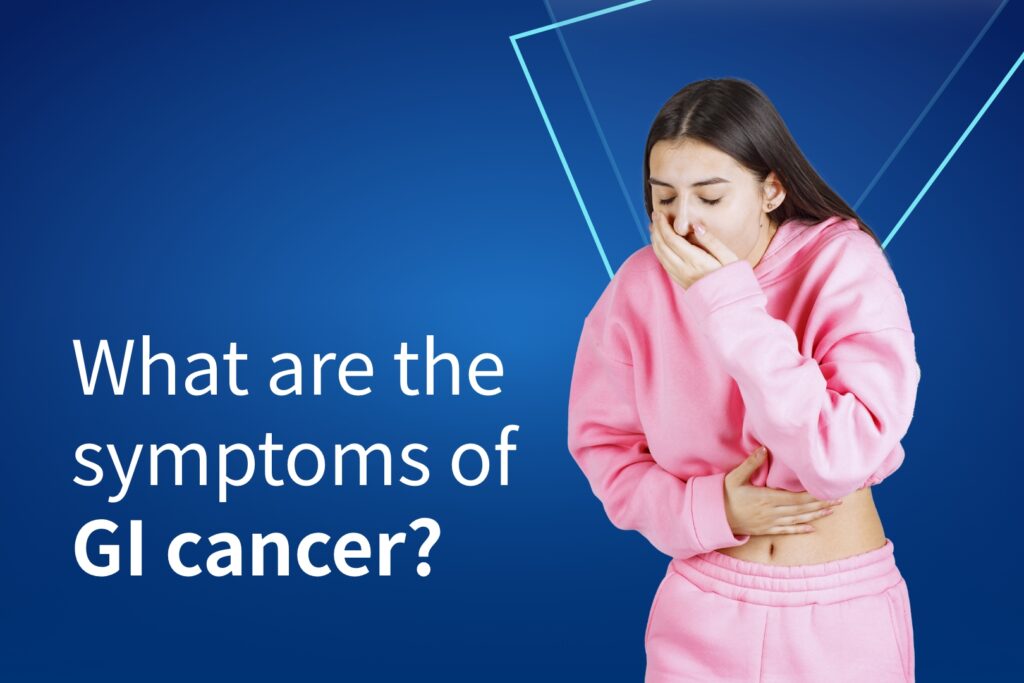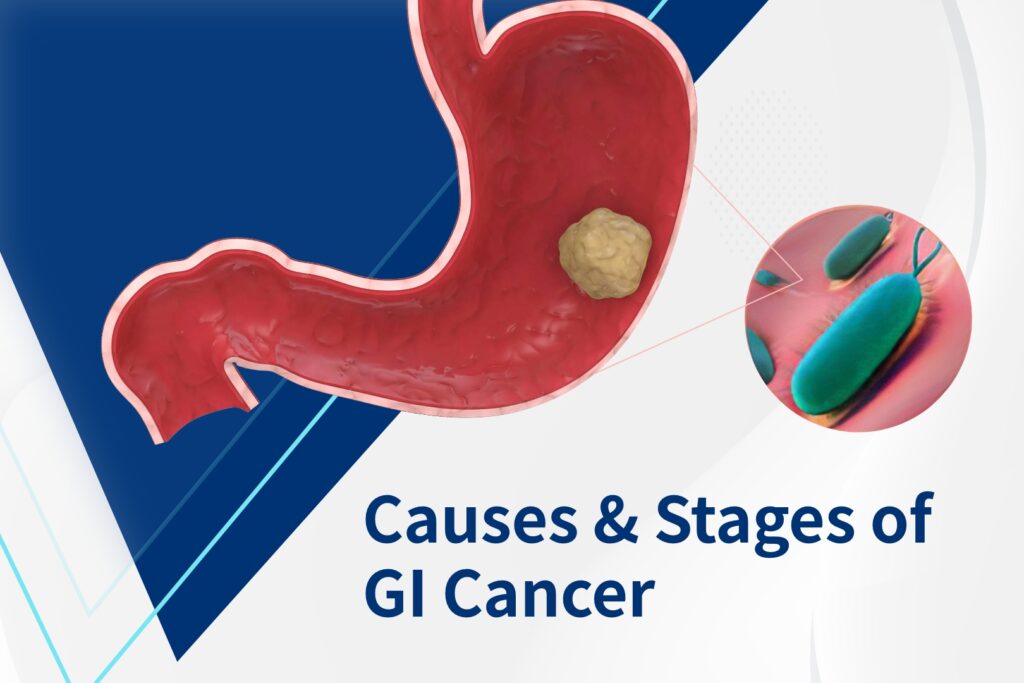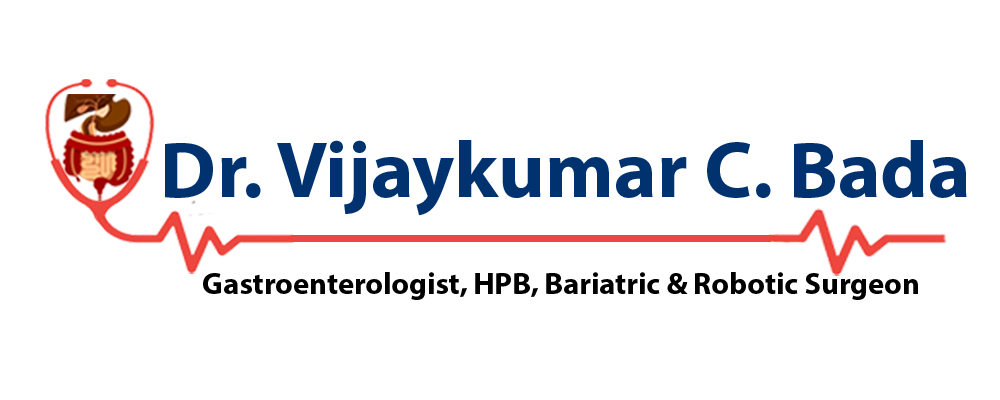What are the symptoms of GI cancer?

In countries where stomach cancer screening is not routine, most stomach cancers are not detected until they have grown to size or have spread outside the stomach. Knowing the symptoms of GI Cancer or Stomach Cancer is an important health topic that people should be aware of.
Did you know that in India, stomach cancer is the fifth most common cancer among men and the seventh most common cancer among women? According to the Indian Council of Medical Research, it is estimated that there were over 42,000 new cases of stomach cancer in India in 2020 alone.
But that’s not all. Stomach cancer also has a relatively low survival rate in India, with only about 30% of patients surviving beyond five years after their diagnosis. This is partly due to the fact that stomach cancer is often diagnosed at a later stage when cancer has already spread to other parts of the body.
However, there is hope. Early detection and treatment can greatly improve the chances of survival for those with stomach cancer. So, let’s delve into this topic further and discuss some important information about stomach cancer, its risk factors, symptoms, and treatment options.
What is GI Cancer?
GI cancer stands for Gastrointestinal cancer. A patient suffering from this type of cancer can develop it anywhere in the digestive system, from the esophagus to the rectum. Cancers of these organs are classified as GI cancer. The most common types of GI cancer include stomach cancer, colon cancer, and pancreatic cancer.
These cancers can be caused by a variety of factors, such as genetics, lifestyle, and environmental factors.
It’s important to keep in mind that a person with one or more of these factors isn’t necessarily at risk for GI cancer. Being aware of these risk factors, however, can help you make lifestyle changes that may reduce your risk.

Causes of GI cancer
- Genetics: Some types of GI cancer, such as colorectal cancer, can run in families. If you have a family history of GI cancer, you may be at a higher risk of developing it yourself.
- Lifestyle factors: Certain lifestyle choices can increase your risk of GI cancer. For example, a diet high in processed and red meats, smoking, heavy alcohol use, and lack of exercise can all increase your risk.
- Age: As we get older, our risk for GI cancer increases. Most people diagnosed with GI cancer are over the age of 50.
- Medical conditions: Certain medical conditions, such as inflammatory bowel disease (IBD) and Barrett’s esophagus, can increase your risk of GI cancer.
- Environmental factors: Exposure to certain environmental factors, such as certain chemicals and toxins, may increase your risk of GI cancer.
Symptoms of GI cancer
- Abdominal pain or discomfort: One of the most common symptoms of GI cancer is persistent abdominal pain or discomfort. This can feel like a dull ache or a sharp, stabbing pain. If the pain is severe or accompanied by other symptoms, it could be a sign of GI cancer.
- Changes in bowel habits: Changes in bowel habits, such as diarrhea, constipation, or narrow stools that last for more than a few days, could be a symptom of GI cancer. If you notice any changes in your bowel habits, it’s important to pay attention and talk to your doctor.
- Blood in the stool: If you notice blood in your stool or rectal bleeding, it could be a sign of GI cancer. Blood in the stool can be bright red or dark and may be mixed in with the stool or on the surface.
- Unexplained weight loss: If you’ve lost weight without trying or have a decreased appetite, it could be a symptom of GI cancer. Unexplained weight loss can be a sign that your body is fighting an underlying health condition, such as GI cancer.
- Nausea and vomiting: Persistent nausea and vomiting, especially if it’s accompanied by other symptoms, could be a sign of GI cancer. Nausea and vomiting can also be caused by other health conditions, but if it persists, it’s important to talk to your doctor.
- Difficulty swallowing: If you’re having difficulty swallowing, especially with solid foods, it could be a symptom of GI cancer in the esophagus. Difficulty swallowing can also be a sign of other health conditions, but it’s important to get it checked out to rule out GI cancer.
- Jaundice: Yellowing of the skin and eyes, dark urine, and pale stools could be a sign of GI cancer in the liver or bile ducts. Jaundice can also be caused by other health conditions, but it’s important to talk to your doctor to rule out GI cancer.
Stages Of GI Cancer
GI cancer, or gastrointestinal cancer, can be classified into several stages depending on the size and extent of the tumor, as well as whether it has spread to nearby lymph nodes or other parts of the body. The stages of GI cancer are typically classified as follows:
Stage 0: This is the earliest stage of GI cancer, where the cancer cells are confined to the innermost layer of the digestive tract lining. At this stage, the cancer is highly treatable and can often be removed through minimally invasive procedures.
Stage I: At this stage, cancer has grown beyond the innermost layer of the digestive tract lining and may have spread to nearby tissues, but has not yet spread to nearby lymph nodes or other organs. Treatment at this stage often involves surgery to remove the tumor, followed by chemotherapy or radiation therapy to kill any remaining cancer cells.
Stage II: At this stage, cancer has grown further into nearby tissues and may have spread to nearby lymph nodes, but has not yet spread to other organs. Treatment at this stage typically involves surgery to remove the tumor, followed by a combination of chemotherapy and radiation therapy to kill any remaining cancer cells.
Stage III: At this stage, cancer has spread to nearby lymph nodes and may have also grown into nearby organs or tissues. Treatment at this stage typically involves a combination of surgery, chemotherapy, and radiation therapy to shrink the tumor and kill any remaining cancer cells.
Stage IV: This is the most advanced stage of GI cancer, where cancer has spread to other parts of the body, such as the liver, lungs, or bones. Treatment at this stage typically involves chemotherapy, targeted therapy, and radiation therapy to slow the growth of cancer and manage symptoms.

Is GI cancer curable by changing lifestyle & diet?
You may be surprised to learn that lifestyle changes and diet modifications can play an important role in helping patients with GI cancer. While they may not be a primary treatment, these changes can improve a patient’s overall health and well-being during and after treatment. Here are some tips on how to kickstart a healthier lifestyle:
Say goodbye to smoking: Did you know that smoking increases the risk of developing several types of cancers, including GI cancer? By quitting smoking, you can reduce the risk of cancer recurrence and improve overall health.
Maintain a healthy weight: Being overweight or obese can increase the risk of developing GI cancer and other health problems. But don’t worry, by making regular exercise and a balanced diet a part of your routine, you can reduce the risk of cancer recurrence.
Load up on the good stuff: A diet rich in fruits, vegetables, whole grains, and lean proteins provides the body with the nutrients it needs to fight cancer and promote healing. Say goodbye to processed foods, red meat, and sugary drinks to improve your overall health.
Stay hydrated: Drinking plenty of water and other fluids can help prevent dehydration and improve digestion. This is especially important for patients undergoing chemotherapy or radiation therapy.
De-stress: Stress can weaken the immune system and make it harder for the body to fight cancer. But finding ways to manage stress, such as through meditation, yoga, or other relaxation techniques, can help improve overall health and well-being.
Remember, lifestyle changes and diet modifications should not replace medical treatment. Patients with GI cancer should work closely with their healthcare team to develop a comprehensive treatment plan that includes both medical treatment and lifestyle changes. By working together, patients and their healthcare team can help improve overall health and increase the chances of successful treatment and recovery.
Conclusion
In conclusion, GI cancer, or gastrointestinal cancer is a serious health issue that affects people across the globe, and stomach cancer is one of the most common types of GI cancer in India. Early detection and treatment of GI cancer can significantly improve survival rates, so it’s important to be aware of the symptoms and risk factors associated with this disease. Symptoms of GI cancer can include persistent abdominal pain or discomfort, changes in bowel habits, blood in the stool, unexplained weight loss, nausea and vomiting, difficulty swallowing, and jaundice. By understanding the stages of GI cancer and the available treatment options, patients can make informed decisions and work with their healthcare team to develop an effective treatment plan. It’s essential to lead a healthy lifestyle and to undergo regular screening tests, especially if you have a family history of GI cancer or other risk factors. By taking a proactive approach to your health, you can increase your chances of detecting and treating GI cancer early, improving your prognosis and quality of life.
Have Any Question?
Are you looking for a Solution for your problem? You can call us or just drop your question here.
Stay Connected with
Dr. Vijaykumar C. Bada

Dr. Vijaykumar C. Bada is the best Gastroenterologist in Hyderabad city of Telangana.
- Flexible Appointments & Urgent Care
Dr. Vijaykumar C. Gastroenterologist
Design & Developed by Pointofviewer
Copyright © 2021. All rights reserved.
